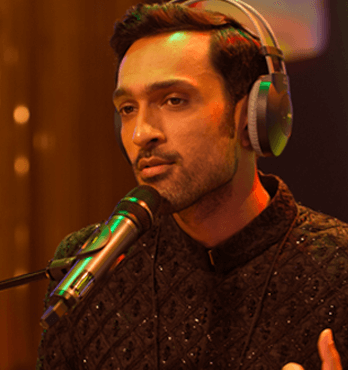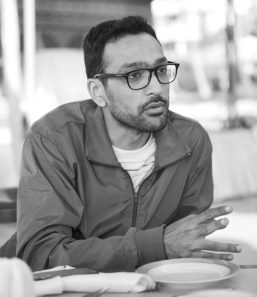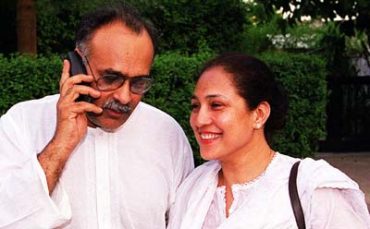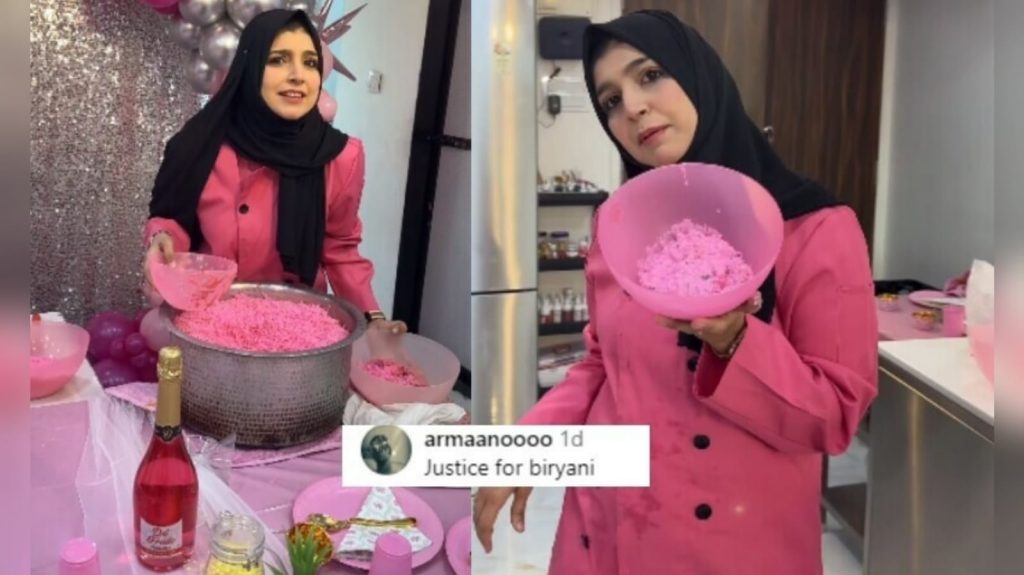


Introduction – Ali Sethi
Ali Sethi is a Pakistani songster, composer, feature writer, and novelist. He attained evaluative rating and appreciation for writing the novel “The Wish Maker”, which was nominated for DSC Prize for South Asian Literature and the Shakti Bhatt First Book Prize Award. He has written quite a few articles for New York Times, The New Yorker, The Caravan, and The Friday Times.


 In 2013, he started concentrating on his music profession and made his beginning of career by singing a song for the first time for a film, The Reluctant Fundamentalist (2013) and discharged a cover single “Mohabbat Karne Waley” far ahead in the same year. Afterwards, he discharged 4 cover singles counting his individual version of Reshma’s tune “Kithay Nain Na Jori”, which received him analytic consideration. He recorded two melodies “Kya Hoga” and “Aah Ko Chayie” for Manto (2015) and appeared as a performing singer in the eighth season of Pakistani music reality show Coke Studio.
In 2013, he started concentrating on his music profession and made his beginning of career by singing a song for the first time for a film, The Reluctant Fundamentalist (2013) and discharged a cover single “Mohabbat Karne Waley” far ahead in the same year. Afterwards, he discharged 4 cover singles counting his individual version of Reshma’s tune “Kithay Nain Na Jori”, which received him analytic consideration. He recorded two melodies “Kya Hoga” and “Aah Ko Chayie” for Manto (2015) and appeared as a performing singer in the eighth season of Pakistani music reality show Coke Studio.
In the year 2016, he discharged his first innovative solo “Mahi Mera” that earned analytical approval. He acquired his first Lux Style Award nominee as a Best Playback Singer – Male at 15th Lux Style Awards, plus he was selected for Best Playback Singer – Male at 2nd ARY Film Awards, both nominees were for his song “Aah Ko Chayie”. He likewise got a Hum Award nominee at 4th Hum Awards for “Kithay Nain” in a Best Music Single category.
Personal Life
Ali Sethi was born on July 2, 1984 in Lahore, Punjab, Pakistan. Both his parents are experienced journalists.
Family Members and Background



He is the son of Najam Aziz Sethi, a Pakistani columnist, writer and a left-leaning governmental analyst who works as the editor-in-chief of The Friday Times and organizes the evening show Aapas ki Baat on Geo News in which political, social, and economic events that are happening now and are discussed. He has worked as the director of the Pakistan Cricket Board for a year. He further more functioned as the temporary chief minister of Punjab throughout the elections of the year 2013.
Jugnu Mohsin is the mother of Ali Sethi and wife of Najam Sethi. She is a Pakistani advanced analyst who is the co-founder and managing editor of The Friday Times and facilitates a weekly talk show Jugnu on Geo News. She was born into a rich Punjabi background, she studied law at University of Cambridge, and there she came across and wedded leftist columnist Najam Sethi.
In the year 1999, her husband Najam Sethi, was abducted by the government of Nawaz Sharif for his efforts as a commentator and seized for one month deprived of charge, initiating Jugnu Mohsin to introducing a worldwide movement for his discharge. The same year, she and Najam Sethi were granted the International Press Freedom Award of the Committee to Protect Journalists.


 In June, the year 1991, Jugnu and Najam Sethi’s printing firm, Vanguard Books, discharged Tehmina Durrani’s My Feudal Lord, a “politically touchy” book about her married life with prominent political figure and a big landowner of Punjab, Mustafa Khar. In the book, she claims that Mustafa Kharill-treated and harmed her. It was an “immediate awareness” and far ahead turned out to be the “hottest book in Pakistan’s antiquity”. Durrani contracted an agreement conferring foreign privileges with Jugnu and giving her 50% of overseas payments.
In June, the year 1991, Jugnu and Najam Sethi’s printing firm, Vanguard Books, discharged Tehmina Durrani’s My Feudal Lord, a “politically touchy” book about her married life with prominent political figure and a big landowner of Punjab, Mustafa Khar. In the book, she claims that Mustafa Kharill-treated and harmed her. It was an “immediate awareness” and far ahead turned out to be the “hottest book in Pakistan’s antiquity”. Durrani contracted an agreement conferring foreign privileges with Jugnu and giving her 50% of overseas payments.
On 19 May 1999, though, for the period of Najam Sethi’s one-month in solitary confinement imprisonment, Durrani called a press session to condemn him as having stolen all of her incomes from the book, affirming that his activities were “an even greater event of insincerity than my familiarity with the feudal system”. Durrani took him to the court for psychological torment, and he counter sued for insult. A former clash over the overseas privileges had been established out of court in 1992. A survey of the agreements by the UK paper “The Independent” defined Najam Sethi as acting in decent trust and designated him and Jugnu Mohsin as “the injured party”.
Ali Sethi’s Sister Mira Sethi who is a Pakistani columnist and performing artist. She went to Lahore Grammar School and Cheltenham Ladies’ College then moved on from Wellesley College in 2010; she spent her junior year abroad at Oxford University.
Education
Ali Sethi belongs to a very educated, cultured and sophisticated family. He moved on from Aitchison College where he completed his O’Level in merit and went to Harvard University from 2002 to 2006 and graduated in South Asian Studies. His maternal close relative Moni Mohsin is likewise an author situated in the United Kingdom.
Career
In 2006, toward the finish of his graduation, Ali Sethi began to compose an English novel The Wish Maker about”the governmental antiquity of Pakistan with three generations of characters who live in a middle-class, open-minded district of Lahore.”


 Subsequently completing his studies, he functioned for 4 months with a publication however shortly gave up to finish the book. He completed the second composition of novel in Pakistan in the year 2008, according to his records, “I was wrapping up at Harvard thus I composed on ends of the week and at evenings. I did not miss classes to compose – and I graduated!” The book was distributed by River head Hardcover and later Penguin Books in 2009 and was encountered with extensive range analytical approval and appreciation. It was positioned on number eight at Vogue Top Ten Summer Books. The book has been interpreted into Italian, Dutch, German, Hindi, Chinese and Turkish dialects.
Subsequently completing his studies, he functioned for 4 months with a publication however shortly gave up to finish the book. He completed the second composition of novel in Pakistan in the year 2008, according to his records, “I was wrapping up at Harvard thus I composed on ends of the week and at evenings. I did not miss classes to compose – and I graduated!” The book was distributed by River head Hardcover and later Penguin Books in 2009 and was encountered with extensive range analytical approval and appreciation. It was positioned on number eight at Vogue Top Ten Summer Books. The book has been interpreted into Italian, Dutch, German, Hindi, Chinese and Turkish dialects.
In a survey, The New York Times called it “a top notch novel”, expressing that “Sethi’s composition summons the amusing mis-allocations of Jonathan Safran Foer and the exposed passion of Zadie Smith.The Wall Street Journal specified that, “Mr. Sethi is particularly active to the sensitive forms of young love, its methods of engagement, and its ways of maneuver… Mr. Sethi’s writing style, each time well-spoken, every so often ascends to light the plain.”
The novel was for quite some time recorded for the 2011 DSC Prize for South Asian Literature however could not make it to the last 6 selections, at last losing to H. M. Naqvi’s, Home Boy. It was additionally nominated for 2010 Shakti Bhatt First Book Award.


 Subsequently graduating, he additionally composed surveys and articles for a few neighborhood and worldwide distributions including The New York Times, The Friday Times and Dawn News for a long time. He has composed reportage and artistic feedback, most eminently an onlooker record of the Indus surge of 2010 for The New York Times. A progressive article on the life and heritage of Urdu short-story author Saadat Hassan Manto for The New Yorker and a revolutionary profile of the Pakistani Ghazal singer Farida Khanum for The Caravan.
Subsequently graduating, he additionally composed surveys and articles for a few neighborhood and worldwide distributions including The New York Times, The Friday Times and Dawn News for a long time. He has composed reportage and artistic feedback, most eminently an onlooker record of the Indus surge of 2010 for The New York Times. A progressive article on the life and heritage of Urdu short-story author Saadat Hassan Manto for The New Yorker and a revolutionary profile of the Pakistani Ghazal singer Farida Khanum for The Caravan.
He in the beginning did a ghazal “Aaj Jaane Ki Zidd Naa Karo” on platform at Harvard. He skillfully began his singing profession by preparing himself for the period of his second year. In a conversation with The Express Tribune he specified that, “I just knew I would come to be a singer; so, in my second year in college, I got myself a harmonium. After that, I began to search for an Ustad who could train me.”
In the year 2008, he began his preparation in classical music from Ustad Naseeruddin Saami. He recorded a couple of Reshma’s melodies in London with artists Tsivi Sharett and Natalie Rosario, which were then released on the video sharing site and got a huge gratefulness. From 2009 till 2012, he got teaching and reliably discharged covers on SoundCloud and YouTube, with record creator Saad Sultan.
Singing Career
In 2013, Ali recorded a melody “Dil Jalanay Ki Baat” in Mira Nair’s political-thriller movie The Reluctant Fundamentalist, which conveyed him to appreciation as a vocalist.The track was titled as the “highlight of the album”. He recorded quite a few covers comprising “Mohabbat Karnay Walay”, “Kithay Nain Na Jori”, “Haal Aisa Nahin” and “Yaad Mein Teri” with recorder and composer Saad Sultan.


 In the period of 2014, he was appointed to sing for the film Manto by Jamal Rahman of True Brew who formerly functioned with Ali on The Reluctant Fundamentalist. Ali Sethi recorded two songs, a duo “Kya ho Ga” with Zebunnisa Bangash and single “Aah Ko Chahiye”. Both tracks attained him analatyical admiration and appreciation. He went on to obtain a Lux Style Award selection as a Best Playback Singer – Male at 15th Lux Style Awards, and was selected for Best Playback Singer – Male at 2nd ARY Film Awards.
In the period of 2014, he was appointed to sing for the film Manto by Jamal Rahman of True Brew who formerly functioned with Ali on The Reluctant Fundamentalist. Ali Sethi recorded two songs, a duo “Kya ho Ga” with Zebunnisa Bangash and single “Aah Ko Chahiye”. Both tracks attained him analatyical admiration and appreciation. He went on to obtain a Lux Style Award selection as a Best Playback Singer – Male at 15th Lux Style Awards, and was selected for Best Playback Singer – Male at 2nd ARY Film Awards.


 In February 2015, he likewise discharged his first music videotape “Kithay Nain Na Jori” at Karachi Literature Festival presenting Ali Sethi himself, featuring Sania Saeed, Adnan Siddiqui and Ali’s sister Mira Sethi as an honor to Reshma. He stated, “Reshma ji’s melody is so influential that these days every person is all set to do everything to carry it back.” Clarifying his honor to the singer he conveyed, “It has been a marvelous passage. Each and every one of us who have functioned on the track have been affected by something truly special. The whole thing, from recording to searching performers and the shooting, came organized at the conclusion and it is for the reason of our affection for the melody. The track belongs to Reshma Ji.”
In February 2015, he likewise discharged his first music videotape “Kithay Nain Na Jori” at Karachi Literature Festival presenting Ali Sethi himself, featuring Sania Saeed, Adnan Siddiqui and Ali’s sister Mira Sethi as an honor to Reshma. He stated, “Reshma ji’s melody is so influential that these days every person is all set to do everything to carry it back.” Clarifying his honor to the singer he conveyed, “It has been a marvelous passage. Each and every one of us who have functioned on the track have been affected by something truly special. The whole thing, from recording to searching performers and the shooting, came organized at the conclusion and it is for the reason of our affection for the melody. The track belongs to Reshma Ji.”
The videotape was manged by Sarmad Sultan Khoosat with whom Ali Sethi worked on film Manto and was produced by his long-time associate Saad Sultan. The Videotape got two selections at the 4th Hum Awards together with Best Music Video for Sarmad Khoosat and Best Music Single for Ali Sethi. He made his skilled screen introduction from the eighth season of Pakistani music reality show Coke Studio as a presented performer.
Current Works
At present, he is creating a movie on lead singer Farida Khanum and preparing his another book as a “tragedy”. On February 5, 2016, he discharged his innovative solo “Mahi Mera” presenting farmer turned folk singer Jamaldin as co-singer. This is Ali’s third partnership with record producer Saad Sultan who formerly functioned with him on music video tapes “Layian Layian” and “Kitay Nain Na Jori”.
The videotape is managed by Umar Riaz and shot completely in Jamal’s and Sethi’s forefathers’ rural community Shergarh and Hussaingarh. Communicating about his teamwork with Jamal din, he stated, “I at first heard Jamal at a marriage ceremony three years before in Shergarh, my motherly grandfather’s inherited village and I reacted instantly to the lehk and soz in his vocal sound, he is a extremely appealing vocalist and I knew I had to record Jamal in a studio and carry his composition to a broader hearers! I supposed of Umar for the video for the reason that I wanted his eye, an interesting but concerned eye! I required the video to ratify the outlook and nature of the track deprived of turning out to be emotional or resorting to methods of ‘rural landscaping'”.


 Discussing Jamaldin, Sethi stated, “I saw this man moving and singing while utilizing strategies of voice prediction and angulation that were beguiling and did not appear to be recognizable to me by any means.” Ali Sethi conveyed Jamal din to his tutor Ustad Naseer Uddin Saami to prepare him, who was willing to work with him in the wake of listening Jamaldin’s voice stating, “We should work with him since his voice speaks to the old Arab impact in the nation.”
Discussing Jamaldin, Sethi stated, “I saw this man moving and singing while utilizing strategies of voice prediction and angulation that were beguiling and did not appear to be recognizable to me by any means.” Ali Sethi conveyed Jamal din to his tutor Ustad Naseer Uddin Saami to prepare him, who was willing to work with him in the wake of listening Jamaldin’s voice stating, “We should work with him since his voice speaks to the old Arab impact in the nation.”


 Ali sang at Lahore College of Arts and Sciences on April 29, 2016, for an occasion arranged by Kuch Khaas, where he did his new solo “Mahi Mera” for the first time alongside with a number of cover tracks. He appeared again as a highlighted singer in Coke Studio season 9 under the group of music instructor Shuja Haider and performed “Aaqa” with the legend Abida Parveen.
Ali sang at Lahore College of Arts and Sciences on April 29, 2016, for an occasion arranged by Kuch Khaas, where he did his new solo “Mahi Mera” for the first time alongside with a number of cover tracks. He appeared again as a highlighted singer in Coke Studio season 9 under the group of music instructor Shuja Haider and performed “Aaqa” with the legend Abida Parveen.
Filmography
- 2013: The Reluctant Fundamentalist – “Dil Jalanay Ki BaatKarte Ho”
- 2015: Manto – “Aah Ko Chahiye” and “Kya Hoga”
- 2015: Ye Mera Deewanapan Hai – “Ye Mera Deewanapan Hai”
- 2015: Coke Studio Pakistan (Season 8) – “Umraan Langiyaan” with Nabeel Shaukat Ali
- 2016: Coke Studio Pakistan (Season 9) – “Aaqa” with Abida Parveen












